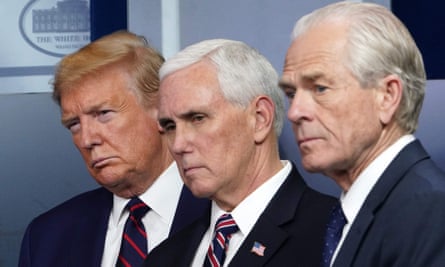The New York Times columnist Paul Krugman has four essential rules for successful punditry:
Those maxims have consistently made Krugman the most intelligent and the most useful New York Times pundit, at least since Frank Rich wrote his final must-read column 11 years ago. A new collection of Krugman’s pieces, therefore, is a timely reminder that actual knowledge and ordinary common sense are two of the rarest qualities in mainstream journalism today.
Krugman’s enemies are the “zombie ideas” of his book’s title, especially the belief that budget deficits are always bad and the notion that tax cuts for the rich can ever benefit anyone other than the plutocrats who never stop pleading for them.
The same tired arguments in favor of coddling the rich have been rolled out over and over again, by Republican presidents from Ronald Reagan to Donald Trump, even though there has never been a shred of serious evidence to support them.
These relentless efforts over five decades culminated in the Trump tax cut, memorably described by the political consultant Rick Wilson as a masterwork of “gigantic government giveaways, unfunded spending, massive debt and deficits, and a catalogue of crony capitalist freebies”.
Wilson also identified the billionaires’ effect on the nation’s capital. Washington, he wrote, has become “the drug-resistant syphilis of political climates, largely impervious to treatment and highly contagious”.
Krugman’s columns act like a steady stream of antibiotics, aimed at restoring the importance of the economic sciences that have been so successfully displaced by brain-dead Republican ideology.
Very few political columns are worth reading 12 months after they are written – the New York Times grandee James Reston accurately titled one of his collections Sketches in the Sand. But Krugman’s book proves that he, a Nobel-prize winning economist, shares two rare qualities with George Orwell, the novelist who also wrote much of the best journalism of the 20th century: deep intelligence and genuine prescience.
Krugman is at his Orwellian best here: “When you’re confronting bad-faith arguments, the public should be informed not just these arguments are wrong, but they they are in fact being made in bad faith.”
It’s “important to point out that the people who predicted runaway inflation from the Fed’s bond buying were wrong. But it’s also important to point out that none of them have been willing to admit that they were wrong.”
Krugman also writes that “even asking the right questions like ‘what is happening to income inequality’” will spur quite a few conservatives to “denounce you as un-American”. And it’s worse for climate scientists, who face persecution for speaking the truth about our continued dependence on fossil fuels, or social scientists studying the causes of gun violence: “From 1996 to 2017 the Centers for Disease Control were literally forbidden to fund research into firearm injuries and deaths.”
The history of the last half-century is mostly about how the unbridled greed of the top 1% has perverted American democracy so successfully, it has become almost impossible to implement rational policies that benefit a majority of Americans.
To Krugman, an “interlocking network of media organizations and think tanks that serves the interests of rightwing billionaires” has “effectively taken over the GOP” and “movement ‘conservatism’ is what keeps zombie ideas, like belief in the magic of tax cuts, alive.
“It’s not just that Trump has assembled an administration of the worst and the dimmest. The truth is that the modern GOP doesn’t want to hear from serious economists, whatever their politics. It prefers charlatans and cranks, who are its kind of people.”

Even now, as the incompetent kleptocrats who have filled up the White House and every federal agency confront the greatest worldwide health emergency of modern times, they have maintained their laser-like focus on the interests of the rich. As the Guardian has reported, “Millionaires and billionaires are set to reap more than 80% of the benefits from a change to the tax law Republicans put in the coronavirus economic relief package … the change will allow some of the nation’s wealthiest to avoid nearly $82bn of tax liability in 2020.”
And as the great labor reporter Steven Greenhouse pointed out this week, with Trump’s latest executive order to keep meatpacking plants open regardless of the consequences to their employees, the president is literally “marching many meatpacking workers off to slaughter”.
Never before in modern American history has the plutocracy so blatantly embraced the idea that profits matter much more than people – especially when the idiotic reopening of the economy weeks before health experts say it’s safe will clearly kill more poor people than anyone else.
When I was 15, I acted as the translator for my uncle Jerry’s family on a tour of the grand chateaux of the Loire Valley. As we traipsed through one spectacular example of conspicuous consumption after another, my deeply progressive uncle kept repeating the same question: “What took them so long to start the revolution?”
If our present calamity is finally enough to force the climate-change-denying, poor-people-hating Republican party from the White House and the Senate, one can only hope the popular imagination will be stirred as it was in Paris in 1793.



